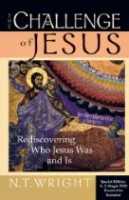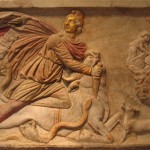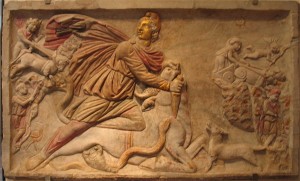Luke 6:1-5 in my commentary writing has been killing me. I’ve been working on these five verses for four months. I got stuck on deuteroproto in Luke 6:1 for three months, and then for the past month of so, I’ve been studying up on the title “son of man” in Luke 6:5. I have finally come to a conclusion, tentative as it may be. Here is what I concluded:
When Jesus speaks of “the son of man,” he is referring not only to himself, but to all humanity as well. A theologically-guided dynamic equivalent translation of “the son of man” could be “I, and all humanity with me.”
I have posted my brief explanation over in the Grace Commentary Dictionary, and would appreciate your feedback.







 On Easter I wrote a post called
On Easter I wrote a post called  Several years ago, I wrote a post about an online movie called
Several years ago, I wrote a post about an online movie called  Furthermore, though we celebrate the birth of Jesus on December 25, few people believe he was actually born this day, nor does the Bible ever say that this is the day of His birth. The parallel is contrived.
Furthermore, though we celebrate the birth of Jesus on December 25, few people believe he was actually born this day, nor does the Bible ever say that this is the day of His birth. The parallel is contrived. Or let me approach this another way. Did you ever hear the story of a fancy ship that ran into an iceberg on its maiden voyage and sank as a result, killing more than half of the people on board because there were not enough lifeboats? No, I’m not talking about the Titanic. The name of the ship was the Titan, and this was the plot of a fictional novel called
Or let me approach this another way. Did you ever hear the story of a fancy ship that ran into an iceberg on its maiden voyage and sank as a result, killing more than half of the people on board because there were not enough lifeboats? No, I’m not talking about the Titanic. The name of the ship was the Titan, and this was the plot of a fictional novel called 
